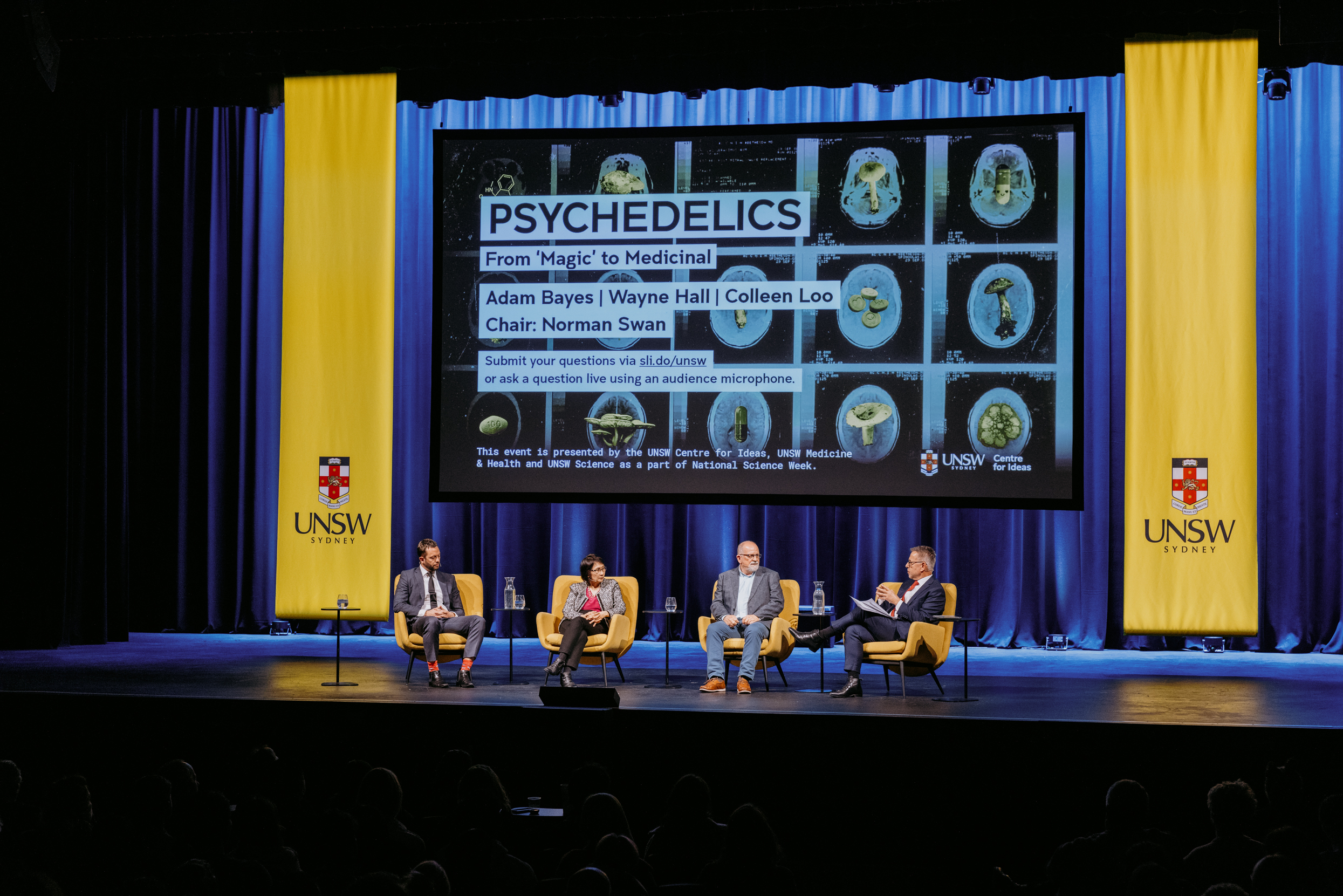Today the world marks World Mental Health Day. The day, which aims to raise awareness of mental health issues, has been celebrated annually since October 10, 1992, and provides an opportunity for those working in the industry to shed greater light on their work and advocate against social stigma surrounding mental health illnesses.
The theme this year is ‘Mental Health is a universal human right’.
I often struggle with these sorts of statements, not because I don't agree with the sentiment, but rather they often seem so much more aspirational than anything grounded in reality. However, something tangible really is afoot which, I believe, brings the statement much closer to reality.
Jess and I attended a talk recently at the University of NSW, ‘Psychedelics: From ‘Magic’ to Medicinal’. The magic refers to Psilocybin, a chemical compound known to be found in so called ‘magic mushrooms’, now being studied as a treatment of certain mental disorders. The panel was chaired by Norman Swan, and included psychiatrist Dr Adam Bayes, Professor Colleen Loo, and Emeritus Professor Wayne Hall.
Australia this year became the first country to allow the prescribing of Psilocybin and MDMA for certain mental disorders. Others aren’t far behind; In the last few months, a group of parliamentarians in the U.K have urged these mushrooms to be reclassified as “a matter of urgency”. In the United States, which historically has played a major role in the global scheduling and prohibition of such compounds, decriminalization is either being considered or is already in motion in nearly 100 jurisdictions, as the FDA has granted psilocybin as “breakthrough therapy”. This comes off a surge of research in the last few years demonstrating that psychedelics-assisted therapy holds enormous promise for people with a range of existing-treatment resistant conditions such as major depressive disorder, anxiety and depression linked to terminal illness, and post-traumatic stress disorder. Recognizing too that existing treatments are not good enough (suicide, the leading cause of death for Australians between the ages of 15 and 44, takes 8.6 Australians every day), there has been an acceptance that something needs to change.

"Depression is a leading cause of disability worldwide and a major contributor to the overall global burden of disease," said panel member, Adam Bayes.
He and his colleagues discussed the stigma, the myths, and the benefits they had seen through their work with mushrooms and other compounds such as Ketamine and MDMA. But it was clear from the audience's questions that what they most wanted to know was how these medicines will be made available, how much will they cost, what the wait times might be, and other practical considerations getting these medicines to those in need. They had filled the university's Science Theatre on a weekday night, and there was nowhere enough time for all the questions they had. Nor could the panel fully address the questions of accessibility; much still remains to be seen - but recognizing the urgency and how difficult this landscape can be to navigate, we shall continue to follow these developments here for those interested in such medicines.
It was pointed out that there are many kinds of treatments and modalities out there that are effective for mental health, many of which work in tandem. And, of course, these new psychedelic medicines won’t work for everyone, but at least they are once again being offered as another weapon in the fight against such debilitating disorders, and to improve the quality of life for those in need, without fear of being locked up, for mental health is a universal human right.
If you or anyone you know is experiencing mental ill health we encourage you to reach out for support.
For those in Australia: Click here for a list of organizations who can be of assistance.
